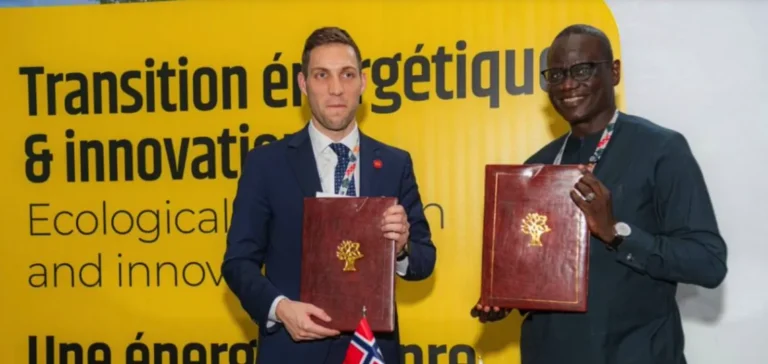Senegal and Norway signed an agreement during COP30 in Brazil to implement the provisions of Article 6 of the Paris Agreement. This partnership positions Senegal among African nations prepared to mobilise international funding in exchange for certified greenhouse gas emission reductions.
A lever to access international carbon finance
The Norwegian government has committed to mobilising up to $740mn to support emission reduction efforts in developing countries. These funds will be allocated through international cooperation mechanisms outlined in Article 6, allowing partner countries to exchange mitigation outcomes. The agreement with Senegal paves the way for the country’s more active participation in the voluntary carbon market structured by the United Nations.
The framework relies in particular on a centralised mechanism designed to generate high-integrity carbon credits, validated at the international level. It is an emerging market, still in development, but increasingly attracting interest from African states seeking financing solutions for their energy and environmental projects.
A regional dynamic already underway in West Africa
An operational precedent already exists in West Africa. In Ghana, a project distributing improved charcoal and wood cookstoves enabled the issuance and sale of carbon credits under a bilateral agreement with Switzerland. This model, based on measurable results, demonstrates that Article 6 mechanisms can become effective tools to channel investment.
According to data from the International Energy Agency (IEA), the African energy-related carbon credit market grew from $43mn in 2020 to $143mn in 2024. Most transactions come from clean cooking projects, a key sector for reducing household emissions across the continent.
Targeted opportunities for renewable projects in Senegal
The partnership with Norway could provide Senegal with additional flexibility to structure renewable energy projects while meeting international carbon market quality requirements. This approach may facilitate the entry of new financial actors and accelerate the deployment of low-carbon technologies in the country.
Norway reaffirmed that its financial support remains subject to transparent monitoring mechanisms and full compliance with the Paris Agreement standards. The bilateral framework signed at COP30 will serve as a foundation for technical and institutional cooperation between the two states.






















